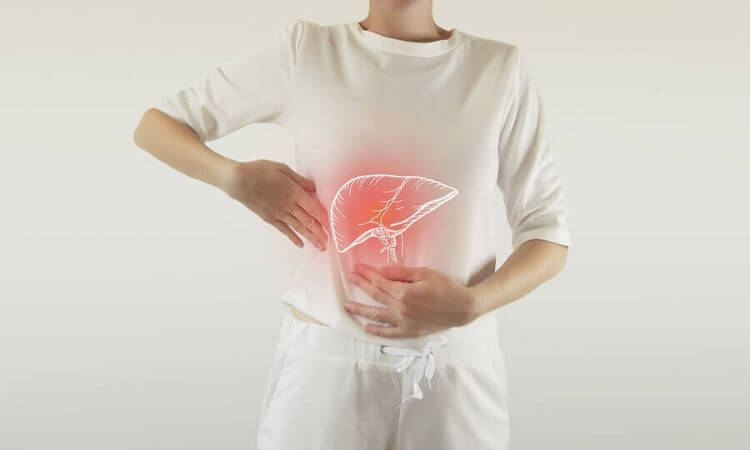
Liquor is a distilled form of alcohol with an average alcohol per volume of 40%, or 80 proof. Liquor, otherwise known as spirits, can found in several different forms, including vodka, gin, rum, whiskey, tequila, and many more. The body processes liquor in a manner similar to all other forms of alcohol, such as beer and wine.
On average, a normal functioning liver can process about ten grams of ethyl alcohol, or one standard drink, per hour. Shortly after consuming alcohol, about 20% will travel through blood vessels on the way to the stomach and then to the brain. The rest to sent to the small intestine, where it is gradually absorbed into the bloodstream. After this, alcohol is moved to the liver, where it is processed and metabolized.
Alcohol in a person’s body is at its peak, and BAC (blood alcohol concentration) is highest just before metabolization begins. When a person consumes more than one alcoholic drink in an hour, the liver gets backed up and cannot process the extra alcohol in the bloodstream. This excess alcohol causes intoxication as well as many mental and physical impairments.
Testing for the Presence of Alcohol
There are a few different tests for alcohol that may be used by law enforcement, the legal system, or employers to determine if a person is intoxicated or has consumed alcohol in the recent past.
Breathalyzer – A breathalyzer is an instrument commonly used by police law enforcement to determine if a driver has consumed too much alcohol before operating a motor vehicle. A breathalyzer is a kind of apparatus in which a suspected drinker must blow a puff of air. The device estimates the person’s BAC as grams of alcohol per mL of blood.
Blood Tests – Alcohol can be identified in the blood for up to 36 hours after the last drink, but it detects most accurately between 6-12 hours. Blood tests are not used as often as breathalyzers because they are more costly and invasive, but occasionally they will be ordered for legal purposes. However, testing for alcohol using blood is considered to be the most accurate method available.
Urine Tests – Alcohol can also be detected in urine from between 8-80 hours. Again, urine tests are not usually administered by employers because alcohol is legal, and a person may have consumed alcohol several days before the test. They also are not good for on-the-spot testing if a person appears to be intoxicated. Urine tests are most likely to be required for legal purposes, such as for people on probation.
Saliva and Hair Tests – Occasionally saliva swabs are used, and they can detect alcohol for up to 24 hours. Hair follicle tests are rare, but when used, they can detect alcohol for up to 90 days, perhaps longer.
Rate of Intoxication
Several factors influence the rate at which an individual will become intoxicated. Alcohol is metabolized at about the same rate for most people, assuming they have a healthy liver, and their overall health is stable. Other factors that may affect a person’s level intoxication include the following:
- Age and sex
- Ethnicity
- Weight and body fat percentage
- Duration and amount of alcohol use
- Amount and fat content of food in the stomach
- Other substances in the body
NOTE: A standard drink of alcohol is defined as 12 oz. of beer, 5 oz. of wine, or 1 oz. of liquor.
Effects of Alcohol

For many, the effects of alcohol begin as rewarding, relaxing, and pleasurable, which is the primary reason people enjoy drinking it. Nevertheless, there are a litany short- and long-term adverse effects and very few, if any, positive long-term consequences of alcohol use. Alcohol’s short-term effect on the body is closely related to a person’s BAC.
Short-term effects include the following:
At 0.03–0.12% BAC:
- Enhanced mood
- Increased self-confidence
- Impaired attention span
- Flushed face or skin
- Impaired motor coordination
- Impaired decision-making and judgment
At 0.09–0.25% BAC:
- Sedation
- Impaired memory
- Blurred vision
- Sensory impairments
- Impaired balance and motor skills
- Reduced ability to react to stimuli
At 0.25–0.40% BAC:
- Amnesia
- Staggered movements
- Nausea and vomiting
- Incontinence
- Slowed heart rate
- Transient consciousness or unconsciousness
At 0.35–0.8% BAC:
- Loss of pupillary light reflex
- Profound respiratory depression
- Perilously slow heart rate
- Weak pulse
- Acute liver failure (rare)
- Coma or death
A BAC of 0.40% or above is considered to be life-threatening in many instances. Depending on an individual’s level tolerance, when this BAC is reached, coma or death may be imminent.
Alcohol Poisoning
If you suspect that you or someone you know is experiencing alcohol poisoning, please call 911 immediately. If you are watching over a person suffering, do not let them “sleep it off” and do not leave them alone until emergency medical help arrives.
Symptoms of alcohol poisoning include the following:
- Confusion
- Profoundly impaired coordination
- Vomiting
- Seizures (uncommon)
- Stupor or unresponsiveness
- Low body temperature
- Cold clammy skin
- Bluing of the skin (cyanosis)
- Loss of consciousness
- Profoundly depressed breathing
Chronic Alcoholism
Long-term effects of heavy alcohol use include the following:
- Gastrointestinal ulcers
- High blood pressure
- Anemia (lack of iron)
- Interrupted brain development
- Wernicke-Korsakoff syndrome
- Loss of brain cells
- Cognitive impairments
- Memory impairments
- Reduced attention span
- Reduced sperm count
- Hepatitis B and C
- Cirrhosis and other liver diseases
Moreover, chronic, excessive alcohol use increases the risk of cardiovascular problems and stroke, as well as several forms of cancer, including the mouth, larynx, pharynx, esophageal breast, and gastrointestinal system.

Tolerance, Dependence, and Withdrawal
The more often a person consumes alcohol, the higher their tolerance will become. Tolerance is a condition that develops in response to repeated, heavy alcohol use. It occurs because the body adapts to its presence and dedicates more enzymes to break it down more efficiently. This reaction leads to a reduced response to alcohol as a result of repeated exposure.
Tolerance is one of the body’s defense mechanisms that is enacted because alcohol is essentially a poison. In fact, the development of tolerance can effectively reduce an individual’s risk of alcohol poisoning. There have been cases of people surviving unbelievably high BAC levels that would have killed the average person at a much lower BAC.
Dependence is hallmarked by the brain’s having developed a need for alcohol to function normally, as well as the appearance of withdrawal symptoms when the person tries to stop drinking. These symptoms can range in intensity from mild-severe, and, in extreme cases, result in life-threatening complications and death.
Symptoms of alcohol withdrawal include the following:
- Sweating
- Fever
- Headache
- Loss of appetite
- Restlessness
- Insomnia or nightmares
- Depression or anxiety
- Shakiness and tremors
- Irritability and moodiness
- Nausea and vomiting
- Confusion
- Racing heart or palpitations
- High blood pressure
- Impaired mental functioning
- Hallucinations
- Extreme disorientation
- Seizures
- Delirium tremens
Treatment for Alcoholism
Alcoholism is a chronic, life-long disease, and, unfortunately, no one cure will work for everyone. Very few alcoholics will ever be able to return to ‘normal’ drinking or fully reclaim their lives while they are engaging in any level of alcohol use.
Fortunately, alcohol dependence is very treatable. Modern treatment approaches typically feature services clinically-proven to be effective at improving patient outcomes long-term. These services may include psychotherapy, individual and group counseling, group support, and medication-assisted treatment.
Midwood Addiction Treatment offers these services in partial-hospitalization, intensive outpatient, and outpatient formats. We provide clients with the tools, skills, and support they need to experience a full recovery and enjoy long-lasting, fulfilling lives.
If you or someone you love is struggling to overcome an alcohol addiction, please contact us today to discuss treatment options. We are committed to helping those who need it most make their lives better so they can look forward to a healthy, happy future free from the use of drugs and alcohol!